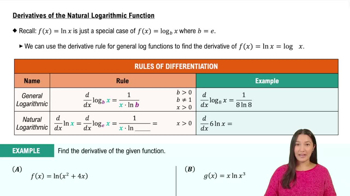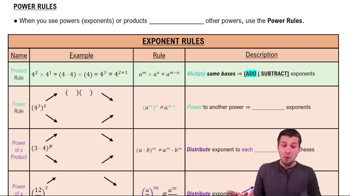Here are the essential concepts you must grasp in order to answer the question correctly.
Limits
Limits are fundamental in calculus, representing the value that a function approaches as the input approaches a certain point. In this context, we are interested in the limit of the function ln(1+h)/h as h approaches 0. Understanding limits is crucial for analyzing the behavior of functions near specific points, especially when direct substitution may lead to indeterminate forms.
Recommended video:
Natural Logarithm
The natural logarithm, denoted as ln(x), is the logarithm to the base e, where e is approximately 2.71828. It is a key function in calculus, particularly in relation to growth rates and areas under curves. In the limit expression given, ln(1+h) captures the behavior of logarithmic growth as h approaches 0, which is essential for evaluating the limit.
Recommended video:
Derivative of the Natural Logarithmic Function
L'Hôpital's Rule
L'Hôpital's Rule is a method for evaluating limits of indeterminate forms, such as 0/0 or ∞/∞. It states that if the limit of f(x)/g(x) results in an indeterminate form, the limit can be found by taking the derivative of the numerator and the derivative of the denominator. This rule can be applied to the limit in the question, allowing for a more straightforward evaluation of the limit as h approaches 0.
Recommended video:
 Verified step by step guidance
Verified step by step guidance Verified video answer for a similar problem:
Verified video answer for a similar problem:



 6:47m
6:47m